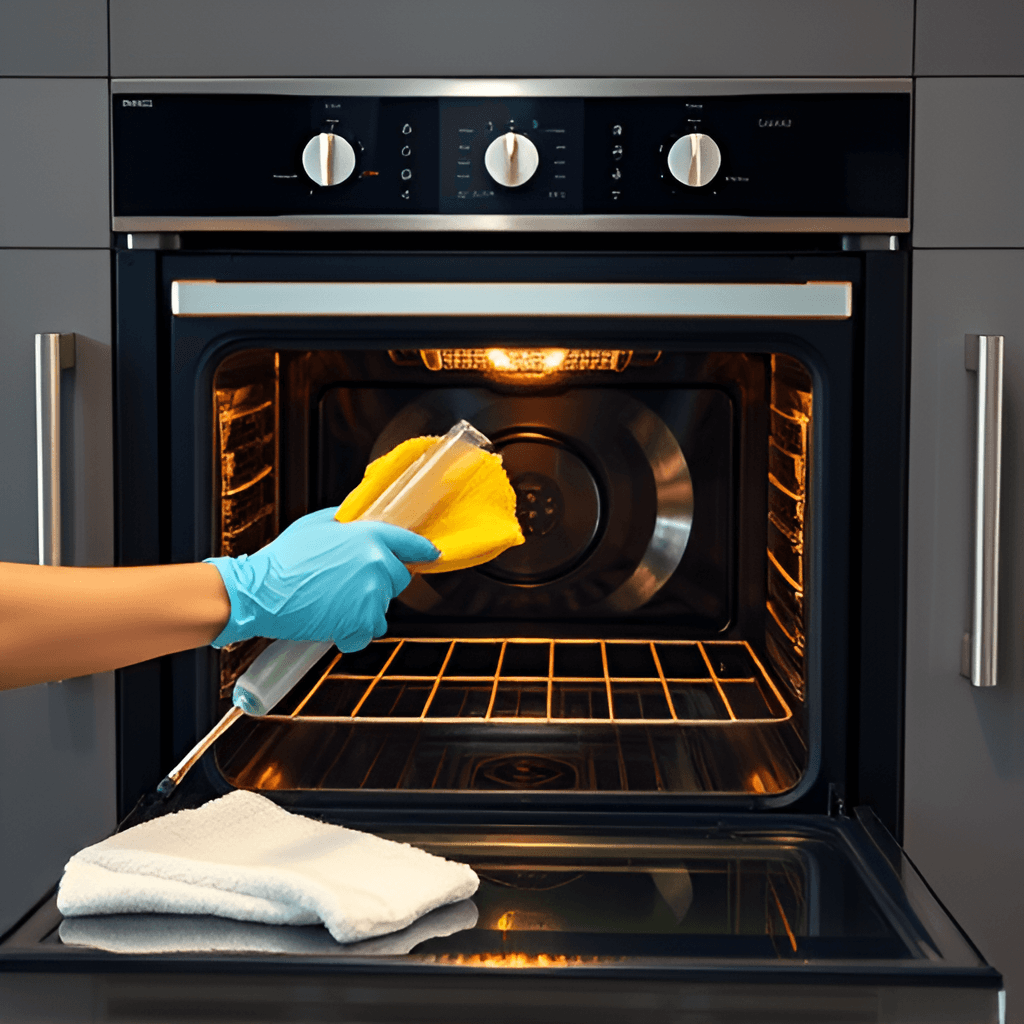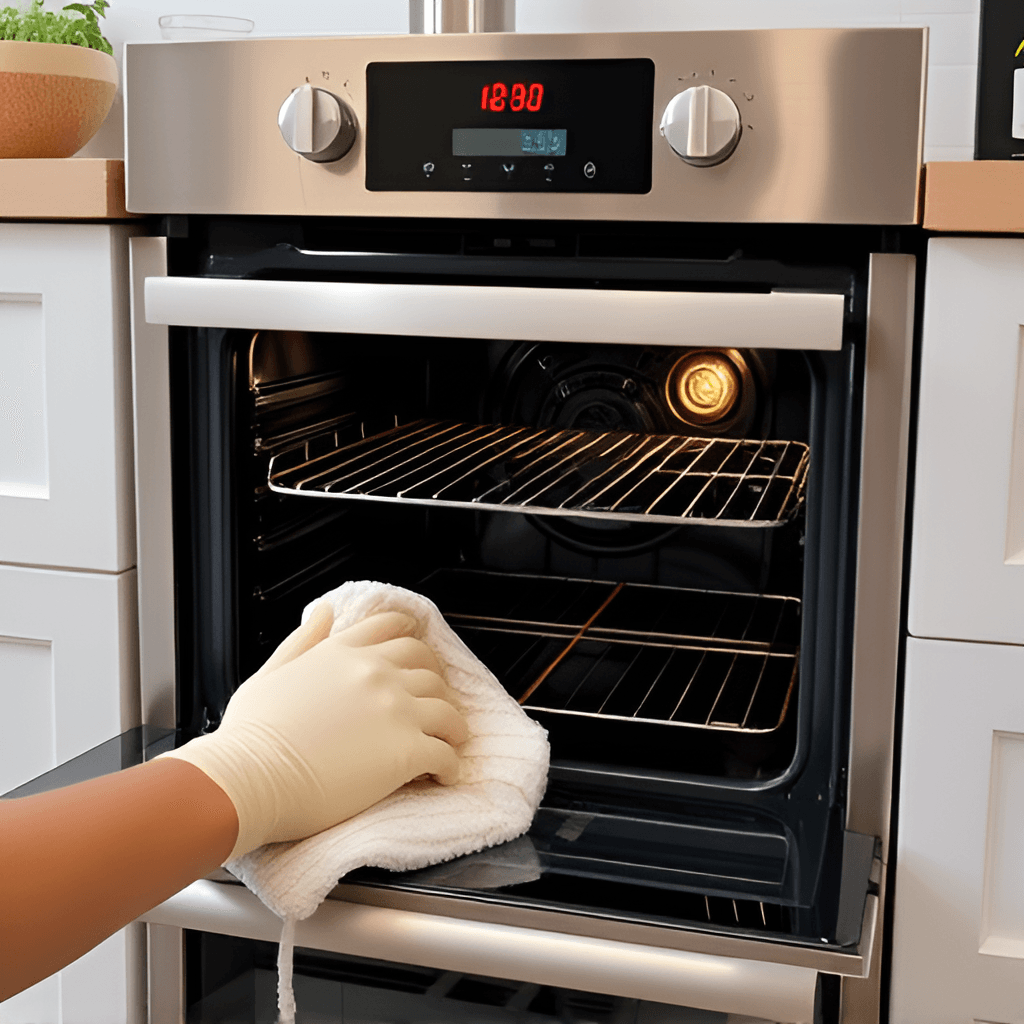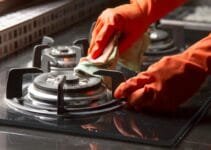Discover the essential tips and techniques for maintaining your oven in peak condition. Learn about the consequences of poor oven care, common cleaning pitfalls to avoid, and safe cleaning methods. Recognize the signs that your oven needs a deep cleaning, understand how often to clean it, and when to seek professional help. With these insights, you can enhance your cooking results, prolong your oven’s lifespan, and ensure a safe kitchen environment. Plus, share your own oven cleaning mishaps with our community for laughs and learning!
Understanding the Consequences of Poor Oven Care
A common oversight in kitchen maintenance is the neglect of regular oven cleaning. Many individuals tend to prioritize other tasks, regarding oven cleaning as non-essential or time-consuming. However, this oversight can lead to significant consequences that affect not only the appliance itself but also the safety and hygiene of the entire kitchen environment.


One of the most immediate concerns associated with infrequent oven cleaning is the accumulation of food residues and grease. Over time, these residues can break down and emit unpleasant odors during cooking sessions. As food spills and fat carbonize, they release fumes that can significantly alter the taste of meals, making them unappetizing. The build-up may lead to smoke production, which not only creates an unpleasant cooking atmosphere but can also set off smoke alarms, causing unnecessary disturbances.
Please, read our post and do not forget to check our YouTube channel “Grig Stamate”:
https://www.youtube.com/@GrigStamate
You will find there, thousands of designing, furnishing, and decorating ideas for your home interior and outdoors.
Allow me to mention one of them:
House Tours, #20 – Amazing Scandinavian Design Style Ideas (video)
Additionally, improper oven care poses much more serious risks. A neglected oven can become a potential fire hazard. The flammable nature of grease and food particles makes them susceptible to ignition, particularly in self-cleaning models that reach high temperatures. Therefore, neglecting to clean the oven can create a volatile situation in which even a minor issue could lead to a greater fire risk. As such, regular maintenance is crucial for ensuring both safety and functionality.
Moreover, a lack of proper cleaning may void warranties or lead to costly repairs. Manufacturers often expect routine maintenance, including cleaning, as part of proper oven care. Failure to comply with these requirements might put users at a disadvantage should any malfunction arise. To mitigate these risks, it is vital to establish a consistent cleaning schedule, ensuring efficient appliance performance while upholding safety standards in the kitchen.
The Common Oven Cleaning Pitfalls
Oven cleaning is an essential maintenance task that ensures optimal performance and longevity. However, many individuals unknowingly commit mistakes that can lead to not only ineffective cleaning but also potential damage to their appliances. One significant error is the use of harsh chemicals, such as ammonia or bleach. While these substances may seem effective at breaking down grease and grime, they can actually cause corrosion or damage to the oven’s interior surfaces. Instead, it is advisable to use milder, eco-friendly cleaning solutions that are specifically designed for oven use.
Another common pitfall is neglecting the self-cleaning feature that many modern ovens offer. This option, if utilized correctly, can significantly ease the cleaning burden. Unfortunately, some users either do not activate this feature or fail to properly prepare the oven for it. For example, it is crucial to remove all oven racks and any loose debris beforehand. Ignoring this step can lead to unwanted residues or even unpleasant odors during the self-cleaning cycle, ultimately requiring additional effort to rectify the situation.
Additionally, many people overlook the importance of following the manufacturer’s instructions regarding oven maintenance. Each model may have unique requirements or recommendations for cleaning processes. Not adhering to these guidelines can result in warranty voids or functional impairments. This often happens when users apply certain cleaning methods that are not suited for their specific oven type, leading to improper functioning or even irreparable damage.
Being mindful of these common oven cleaning pitfalls can save time, effort, and money. By avoiding harsh chemicals, taking advantage of the self-cleaning feature, and following the manufacturer’s instructions, homeowners can maintain their ovens efficiently and effectively.
Signs That Your Oven Needs a Deep Clean
Keeping your oven in pristine condition is essential for both cooking quality and overall kitchen hygiene. However, there are several indicators that signal the need for a thorough oven cleaning. Recognizing these signs can help maintain your oven’s efficiency and longevity while preventing unpleasant cooking experiences.
One of the first signs that your oven requires a deep clean is the presence of burnt-on food. Over time, spills from cooking and splatters can build up, creating stubborn residues that impact both the performance and appearance of your oven. If you notice dark spots or caked-on grime, it is time to address these issues before they become more challenging to remove.
Another telltale sign is grease buildup. Ovens tend to accumulate grease from various cooking processes, and this buildup can not only affect the taste of your meals but also pose a fire hazard if left unattended. Regular inspections can help avert these risks; hence, a visibly greasy interior should prompt an immediate cleaning session.
Strange smells while the oven is in use can also indicate that cleaning is overdue. If you start to detect unusual odors, it may suggest that old food residue is burning or producing smoke. Ignoring these smells could lead to more significant issues, including smoke damage to the interior or, in worse cases, malfunctions.
Additionally, if your oven is taking longer than usual to heat or cook food evenly, this might be a sign that it is time for a deep clean. A buildup of dirt can hinder the oven’s heating elements, leading to inefficient cooking. Therefore, inspecting your oven regularly for these signs not only preserves its functionality but also enhances your cooking experience by ensuring that your meals are prepared safely and deliciously.
Safe and Effective Oven Cleaning Techniques
Maintaining a clean oven is essential for efficient cooking and food safety. However, using the wrong cleaning methods can result in damage to the appliance. Several safe and effective techniques can ensure your oven remains in peak condition without causing harm. These methods include both natural cleaning solutions and DIY mixtures, as well as tips on the responsible use of commercial products.
One of the most popular natural cleaning solutions involves using a mixture of baking soda and water. Combine these ingredients to form a paste and apply it to the interior surfaces of your oven, avoiding the heating elements. Allow the paste to sit for several hours, or overnight if possible, to loosen baked-on grease and grime. Afterward, use a damp cloth to wipe away the residue. This method is non-toxic and effective, making it suitable for regular oven maintenance.
Another effective DIY cleaning mixture is a vinegar solution. After applying baking soda, spray white vinegar on the areas to be cleaned. The combination of vinegar and baking soda creates a foaming reaction that can help lift stubborn stains. Wipe the surfaces again to remove any remaining residue. This two-step process provides a thorough clean while remaining safe for your oven.
If you choose to use commercial oven cleaners, it is vital to read and follow the manufacturer’s instructions carefully. Opt for products labeled as safe for self-cleaning ovens, and ensure proper ventilation when applying these cleaners. Avoid using abrasive pads or scrapers that could scratch the oven surface. It is important to allow sufficient time for the oven to dry completely before using it again, as lingering chemicals can be harmful.
Using these safe and effective techniques will help keep your oven clean, functional, and in good shape, avoiding the worst mistakes in oven cleaning practices.
Frequency: How Often Should You Clean Your Oven?
When it comes to oven cleaning, one cannot ignore the question of frequency. The age-old debate between cleaning based on appearance versus adhering to a fixed schedule persists among homeowners. While some individuals prefer the “clean it when it looks dirty” approach, others advocate for routine cleaning to maintain an appliance’s longevity and efficiency. Interestingly, the answer often varies depending on the type of oven, its usage, and the culinary adventures undertaken.
For individuals who use their ovens daily or several times a week, it is generally advisable to clean them every month or so. Regular usage can result in build-up from spills, splatters, and food drippings, making the oven not just less aesthetically pleasing but also potentially affecting the taste of subsequent meals. This frequency can help ensure that any residue does not harden and become more challenging to remove later.
On the other hand, casual cooks who only use their ovens for special occasions may find that cleaning every three to four months is sufficient. The less frequent use reduces the amount of residue, though it is still important to inspect and clean for any signs of accumulated grime. Those who are inclined towards roasting meats or baking pies might discover that a deep clean after each major culinary event could be beneficial.
It’s essential to find a cleaning rhythm that works for you, balancing cleanliness with practicality. Whichever side of this debate you fall on, remember that neglecting oven maintenance for too long can lead to larger problems, such as smoke during cooking or even potential fire hazards. With this in mind, finding a regular schedule or just keeping an eye on its condition seems to be the wisest approach for most households.
When to Call in the Professionals
While regular oven cleaning is essential for maintaining its efficiency and prolonging its lifespan, there are certain scenarios where seeking professional assistance is advisable. Attempting to clean an oven with stubborn stains or excessive buildup can lead to more harm than good. For instance, when baked-on food and grease have accumulated over a long period, they may require specialized cleaning techniques and products, which professionals have access to. Trying to address these issues with basic household cleaners may not only fail to deliver the desired results but could also cause damage to the oven’s surface.
Another situation warranting professional intervention is when electrical issues are present. If the oven is exhibiting unusual behavior—such as failing to heat completely, irregular temperature control, or malfunctioning timers—it may indicate underlying electrical problems. In such cases, a professional technician is equipped with the right knowledge and experience to safely troubleshoot and rectify these issues without risking personal safety or further damage to the appliance.
If an oven has not been cleaned for several years, it may require restoration rather than a routine cleaning. Over time, the remnants of both food and cleaning products can build up to a point where a thorough evaluation is necessary. Professionals often conduct deep cleaning procedures that not only clean but also restore the oven to its optimal working condition. This process often includes disassembling parts, which is not a task suited for the average homeowner. Therefore, recognizing these scenarios early on can save time, effort, and ultimately, the integrity of the appliance.
The Benefits of Regular Oven Maintenance
Maintaining your oven through regular cleaning and upkeep is essential for several reasons that can have a lasting impact on both the appliance and your cooking experience. One significant benefit is enhanced energy efficiency. Over time, ovens accumulate grease, food particles, and other residues that can obstruct their performance. A clean oven operates more efficiently, requiring less energy to achieve the desired cooking temperatures. This not only conserves energy but also reduces utility bills, making it an economically sound practice for any household.
Moreover, regular maintenance leads to better cooking results. A clean oven ensures even heat distribution, which is crucial for achieving perfectly baked goods and evenly cooked meals. When an oven is laden with grime, the heat may not circulate effectively, causing inconsistent cooking. Therefore, by prioritizing routine oven maintenance, you enhance your culinary results and overall satisfaction with your meals.
Another significant advantage of regularly maintaining your oven is the extension of its lifespan. Just like any other appliance, neglecting proper care can lead to premature wear and tear. By dedicating time to clean and inspect your oven periodically, you can identify potential issues early on and address them before they escalate. This proactive approach not only saves you money in repairs and replacements but also ensures that your oven remains a reliable tool in your kitchen for years to come.
Incorporating oven maintenance into your household chores will yield considerable long-term benefits. By treating this task as a priority, you ensure energy efficiency, improved cooking outcomes, and a prolonged appliance lifespan, all of which contribute to a more functional and enjoyable kitchen environment.
Personal Anecdotes: My Own Oven Cleaning Mishaps
Cleaning the oven is a task that often elicits groans of despair. I certainly have my share of oven cleaning mishaps that could fill a comedic tale. One particularly memorable incident began with my overzealous enthusiasm. Armed with an array of cleaning supplies that I believed could tackle even the most stubborn grease, I mistakenly underestimated the power of one particularly potent oven cleaner. With bravado, I sprayed the oven interior amply, thinking it would streamline the entire cleaning process. However, I failed to read the instructions thoroughly. The cleaner’s fumes were overwhelming, leading to an impromptu evacuation of my kitchen, which left a lingering cloud to remind me of my blunder.
Another amusing adventure occurred when I decided to try a DIY approach to oven cleaning using baking soda and vinegar. I had read numerous online testimonials praising the natural cleaning method as the holy grail of non-toxic products. Mixing equal parts baking soda and vinegar, I created a bubbly concoction but was blissfully unaware of the chaos that would ensue. As I applied the mixture, it erupted like a science project gone wrong. The foamy eruption spilled over every surface of the oven, requiring an even more extensive clean-up than I had aimed to avoid, leaving me to question my decision to embrace the DIY trend.
Finally, there was the time I inadvertently locked myself out of my house during a cleaning spree. Caught up in scrubbing and wiping, I stepped outside to dispose of the trash, only to realize I had left my keys inside, with the oven timer beeping ominously. As I waited for the locksmith, I couldn’t help but feel that perhaps my oven cleaning technique was just as locked away as I was. These humorous moments serve as vital reminders that oven cleaning is often more than just a chore; it can be a lesson in patience and preparation for all who endeavor to tackle it.
Reader’s Corner: Share Your Oven Cleaning Fails!
We all have our moments in the kitchen, where an innocent task turns into an unexpected chaos. Oven cleaning, in particular, often brings about a wealth of stories, some of which can be quite entertaining or even enlightening. As you embark on your own oven cleaning journey, consider the many ways things can go hilariously wrong. Have you ever attempted to use a new cleaning product only to discover it was ill-suited for your appliance? Perhaps you’ve tried DIY methods that left your oven in an even worse state than before. Whatever your experience may be, we want to hear from you!
Oven cleaning mishaps can range from small blunders to significant disasters. For instance, some people have reported their favorite oven cleaner accidentally reacting with other substances, creating a messy situation that required more time and effort to resolve. Others have shared stories of misjudging the time it would take to clean, resulting in missed dinner plans or ruined meals. These anecdotes can provide important lessons and foster a better understanding of the challenges associated with this common household chore.
So, why not join the conversation? Share your funniest, most cringe-worthy, or even enlightening oven cleaning fails in the comments section below. Your story could not only bring a smile to someone’s face but also serve as a valuable tip to fellow readers who might be facing similar challenges. Remember, no story is too small, and your experiences may help others navigate the often tricky waters of oven cleaning. Let’s create a community where we learn from each other’s experiences, turning our cleaning mishaps into shared moments of laughter and insight!
Other related posts from our website:
https://howtobuildahouseblog.com/how-often-should-your-home-get-a-deep-cleaning/
https://howtobuildahouseblog.com/how-to-clean-cast-iron-range-grates-without-damaging-the-finish/
https://howtobuildahouseblog.com/how-a-water-alarm-can-help-you-avoid-catastrophic-leaks/
Thank you so much for your attention.
Stay tuned. We will upload many other amazing posts to our website and videos onto our YouTube channel.
Thank you so much.
for your time and attention.
Best Regards
See you to another post,
Bye, Bye



No Responses